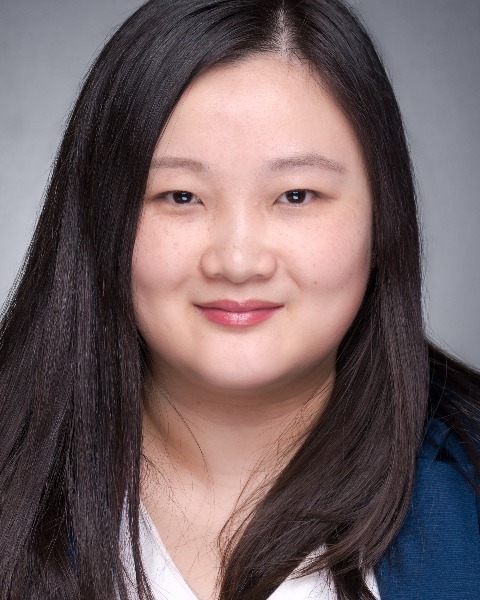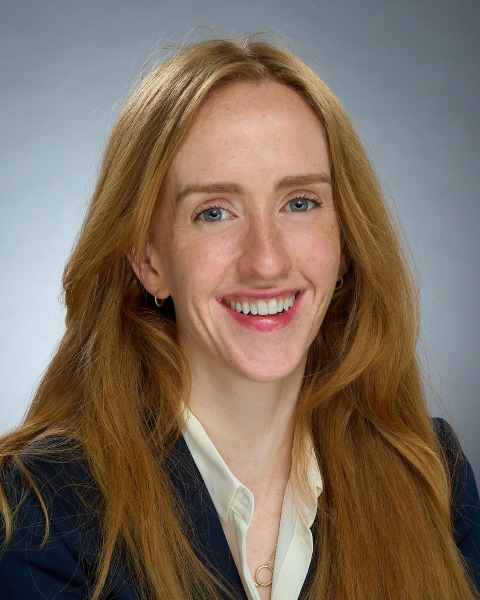Cardio-Oncology
Women in Cardiology
Prevention
EDI (Equity, Diversity, Inclusion)
Nursing & Allied Health
111 - MANAGING THE WOMAN AT RISK 2025 RISK PREDICTORS AND BROKEN CALCULATORS, THE ROLE OF PSYCHOLOGICAL STRESS, AND AN UPDATE CARDIO ONCOLOGY FOR THE CV PRACTITIONER
-

Shuangbo Liu, MD, FRCPC
Interventional Cardiologist/Assistant Professor
University of Manitoba
University of Manitoba -
KN
Kara Nerenberg, M.D.
Associate Professor
University of Calgary, Libin Cardiovascular Institute -

Judy Luu, MD/PhD
Cardiologist
McGill University Health Centre
McGill University -

Husam Abdel-Qadir, MD, PhD
Associate Professor, Department of Medicine and Institute of Health Policy Management and Evaluation
University of Toronto
Women's College Hospital, University Health Network, University of Toronto -

Beth Lynn Abramson, MD MSc FRCPC FACC
Cardiologist, Paul Albrechtsen Prof. of CV Prevention, U of T
St. Michael's Hospital
University of Toronto -

Jean-Philippe Gouin, PhD Professor, Concordia University
Professor
Concordia University -

Judy Luu, MD/PhD
Cardiologist
McGill University Health Centre
McGill University -

Seana Nelson, MD MSc FRCPC
Fellow
University of Toronto
University of Toronto -

Amélie Paquin, MD, PhD (she/her/hers)
Cardiologist
Institut Universitaire de Cardiologie Et de Pneumologie de Québec
Institut universitaire de cardiologie et de pneumologie de Québec - Université Laval -

Amélie Paquin, MD, PhD (she/her/hers)
Cardiologist
Institut Universitaire de Cardiologie Et de Pneumologie de Québec
Institut universitaire de cardiologie et de pneumologie de Québec - Université Laval -

Seana Nelson, MD MSc FRCPC
Fellow
University of Toronto
University of Toronto -

Beth Lynn Abramson, MD MSc FRCPC FACC
Cardiologist, Paul Albrechtsen Prof. of CV Prevention, U of T
St. Michael's Hospital
University of Toronto -

Beth Lynn Abramson, MD MSc FRCPC FACC
Cardiologist, Paul Albrechtsen Prof. of CV Prevention, U of T
St. Michael's Hospital
University of Toronto -
DE
Daniel Esau, M.H.Sc., M.D., FRCPC
Internal Medicine Physician/Clinical Instructor
University of British Columbia
University of British Columbia -

Judy Luu, MD/PhD
Cardiologist
McGill University Health Centre
McGill University -

Stephanie Poon, MD, MSc, FRCPC
Staff Cardiologist
Sunnybrook Health Sciences Centre
University of Toronto -

Tara Sedlak, MD, FRCPC, MBA (she/her/hers)
Cardiologist, Director Leslie Diamond Women’s Heart Health Clinic
Vancouver General Hospital
University of British Columbia
Co-Chair(s)
Panelist(s)
Presenter(s)
Early Career(s)
Trainee(s)
Moderator(s)
Planning Committee Member(s)
Workshop Description: Cardiovascular disease (CVD) in women presents unique challenges in both risk stratification and management. This interactive, case-based workshop will provide a practical clinical roadmap for recognizing and addressing the distinct risks for CVD in women, emphasizing an individualized and sex-specific approach to care.
The role of psychological stress in women and its relationship to CVD is complex and multifaceted. Women experience higher rates of psychosocial stress and are more vulnerable to its cardiovascular effects, including inflammation, microvascular dysfunction, and autonomic dysregulation. Emerging evidence highlights that stress can accelerate the development of ischemic heart disease in women, even in the absence of obstructive coronary artery disease. Conditions like depression and anxiety—more common in women—remain under-recognized yet significant contributors to cardiovascular risk. These findings highlight the urgent need for prevention strategies that address mental wellness as a core component of cardiovascular care in women.
As women tend to present with atherosclerotic cardiovascular disease (ASCVD) at an older age, they are also more likely to have pre-existing comorbidities, such as a history of cancer. Notably, one in eight women is expected to develop breast cancer in her lifetime. The intersection between oncology and cardiology is increasingly relevant, as cancer treatments—particularly anthracyclines, HER2-targeted therapies, and radiation—can lead to cardiotoxicity and elevate long-term cardiovascular risk. These complexities necessitate a proactive approach to cardiovascular prevention in female cancer survivors.
Cardiovascular risk estimation in women remains a significant challenge. Traditional tools such as the Framingham Risk Score often underestimate risk, particularly in younger women or those with non-traditional risk factors. Women are affected differently by traditional CVD risk factors than men and may present with unique risk enhancers such as hypertensive disorders of pregnancy, premature menopause, polycystic ovarian syndrome, and chronic inflammatory conditions. Despite their impact, these sex-specific risk factors are rarely included in standard risk calculators. This workshop will address these gaps using illustrative clinical cases to demonstrate an integrative approach to risk assessment.
Participants will leave with a deeper understanding of sex- and gender-specific cardiovascular risk factors and gain practical tools for improving risk communication, prevention strategies, and longitudinal care planning for women across the lifespan—including during and after cancer treatment.
Learning Objectives:
- recognize the impact of psychological stress on the development and progression of CVD in women;
- identify the limitations of traditional cardiovascular risk assessment tools in women and understand how both traditional and sex-specific risk factors contribute to overall risk.
3. Apply a practical, evidence-based approach to estimating and communicating CVD risk with female patients; and - describe the cardiovascular risks associated with breast cancer and its treatment, and how these risks contribute to long-term outcomes; and
- develop a clinical framework for assessing and managing cardiovascular risk in women before, during, and after cancer therapies with potential cardiotoxicity.
